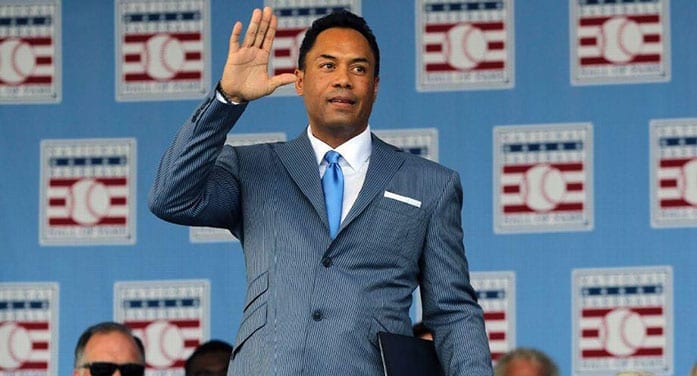 Public opinion is fickle. We love to sing the praises of individuals and put them on pedestals, but we’re just as apt to demonize these same people in the court of public opinion.
Public opinion is fickle. We love to sing the praises of individuals and put them on pedestals, but we’re just as apt to demonize these same people in the court of public opinion.
Is this type of thinking getting us anywhere? Aren’t we all simply humans with the capacity to do good or bad things?
Should celebrities be ‘cancelled’ or would we do the world a greater service by examining the underlying injustices of our society?
I recently came face to face with my attitudes toward cancelling celebrities. I’ve been a Toronto Blue Jays fan since the team’s inception in 1977. Last summer, I bought a framed piece called Toronto’s Greatest Baseball Legends at a charity auction. Of course, it included a picture of Roberto Alomar, the Hall of Fame second baseman and a key member of the 1992 and 1993 World Series championship teams.
On April 30, Major League Baseball announced that Alomar had been banned after a thorough investigation of a 2014 allegation of sexual misconduct against him. He can no longer work for any baseball team, even in the minor leagues.
The Blue Jays announced that his name would be removed from their Level of Excellence, and the banner with his retired number 12 would be removed from the rafters of the Rogers Centre.
Cancelled.
This isn’t the first time there have been allegations directed at Alomar. Two women filed lawsuits claiming he had unprotected sex with them despite being HIV positive. The outcome of these cases hasn’t been made public.
What am I to do with my picture of Alomar? Do I remove it? Do I replace his photograph with that of another, more deserving player?
As I reflected, I realized there was a more important story that needs to be told. Yes, Alomar was a great baseball player, but there’s more to being a human than our athleticism. Internal qualities like honesty, integrity and courage are far more important.
The hero in these most recent allegations, the one who deserves to be celebrated, is the unnamed woman who reported Alomar. According to her lawyer, Lisa Banks, “My client has no intentions to file a lawsuit or take further actions. She has not exposed Mr. Alomar’s behaviour for notoriety or money and looks forward to moving on with her life. She simply wants to ensure that Mr. Alomar is held accountable for his wrongdoings and hopes her actions can help Major League Baseball create a safer workplace for its employees.”
There’s no such thing as a perfect human, so it’s important to resist the temptation to idolize one another. Recognizing someone for acting according to principles we believe in isn’t the same as putting them on a pedestal, however. It’s simply a reminder to act the same when the opportunity arises.
Are the Blue Jays right in removing Alomar’s name from a place of honour? Should the Baseball Hall of Fame add a footnote to his story beside his plaque at Cooperstown, N.Y.?
I can’t speak for these organizations, but I can respond to my situation in a way I believe is right. If I were to remove Alomar’s picture from my wall, I would be cancelling the opportunity to tell the story of a brave woman who put her career on the line in order to speak the truth and protect others from a potentially dangerous person.
Alomar’s picture remains, along with her story and a reminder to stay true to one’s principles.
Troy Media columnist Gerry Chidiac is an award-winning high school teacher specializing in languages, genocide studies and works with at-risk students. For interview requests, click here.
The views, opinions and positions expressed by columnists and contributors are the authors’ alone. They do not inherently or expressly reflect the views, opinions and/or positions of our publication.
© Troy Media
Troy Media is an editorial content provider to media outlets and its own hosted community news outlets across Canada.

